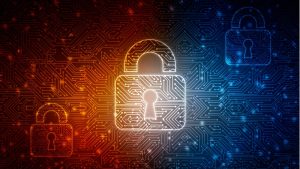The New York Attorney General’s (AG) office has reached a settlement with five companies–Equifax, Western Union, Priceline, Spark Networks, and Credit Sesame–that it said weren’t doing enough to facilitate security of their customers’ data.
State and local governments are starting to make progress–albeit slowly–on adopting latest-generation email authentication protocols.
A Federal grand jury in Atlanta has indicted two Iranian nationals for the March 2018 ransomware attack against the City of Atlanta. Faramarz Shahi Savandi and Mohammed Mehdi Shah Mansouri were charged with violating the Computer Fraud and Abuse Act.
The Senate Rules & Administration Committee yesterday advanced two of President Trump’s nominations to the Election Assistance Commission.
Sens. Amy Klobuchar, D-Minn., and Dan Sullivan, R-Alaska, on Friday introduced the Global Electoral Exchange Act, which would task the State Department with creating an international election security information sharing program.
In what may qualify as the second largest data breach ever, Marriott announced that up to 500 million guests at the company’s Starwood Group hotels have had their personal data stolen.
In a letter released Thursday, Rep. Jerrold Nadler, D-N.Y., questioned the Trump administration’s commitment to election security and pressed administration officials to communicate more clearly with Congress about the issue.
The State of North Carolina, Cisco and industry partners will work together to implement a cybersecurity training initiative for veterans in the state, as the state announced today.
The Department of Homeland Security (DHS) Science and Technology Directorate (S&T) announced today that it issued $1,272,320 of funding awards to develop new solutions to “improve the capability of organizations to understand and improve their cybersecurity control investment decisions.” The funding will be split between University of California, San Diego and University of Illinois, Chicago.
Following President Trump’s proclamation of November as National Critical Infrastructure Security and Resilience Month, Secretary of Homeland Security Kirstjen M. Nielsen released a statement on Wednesday saying she and DHS are “committed to strengthening our efforts to protect and secure the infrastructure on which Americans rely, in close partnership with other Federal agencies, state, local, territorial and tribal governments, and the private sector.”













